The Wabash Center provides funds for projects that enhance teaching and learning in the fields of religion and theological studies as taught in colleges, universities, and theological schools. Routinely, we fund projects that focus on: improving teaching and learning practices in and beyond the classroom; nurturing supportive environments for teachers; nurturing supportive teaching environments for learners; strengthening student learning; connecting the classroom to the wider society.
The Wabash Center understands its grant projects as learning processes. A grant proposal will need to support projects, initiatives, programs, and design moments of exploration, discovery, learning, and response for those participating in the grant project. The project director should think of the presenting pedagogical issue as that which needs investigation, exploration and interrogation, and the activities of the grant project as the means by which this exploration is satisfied.
In 2023, funding of Large Project Grant proposals up to $30,000 with these foci will be prioritized:
#1 Communal Care and Connection
#2 Teaching Social Justice and Civic Engagement
For additional information about grant proposals up to $30,000, see: https://www.wabashcenter.wabash.edu/wabash-grants/project-grants/
In 2023, funding of Small Project Grant proposals up to $5,000
For information about small grant proposals up to $5,000, see: https://www.wabashcenter.wabash.edu/wabash-grants/small-project-grants/
In 2022, Peer Mentoring Clusters Grants proposals up to $7,500
Deadline for Proposals is May 5, 2022.
The 2022-23 Cluster Leaders’ Meeting is August 8 and 9, 2022.
The Wabash Center funds up to 10 grants each year to support small groups for peer-to-peer mentoring. These are designated for mid-career faculty of color who have been participants in a past Wabash Center workshops or colloquies, and are intended to support the development of multi-year relationships with a small group of colleagues.
Minoritized faculty face particular challenges and pressures and can benefit from networks of peer-to-peer mentoring. Peer mentoring conversations can surface ways to meet the demands of mid-career teaching and administrative responsibilities. They can also provide faculty of color with strategies not only to discern challenges and pressures, but to navigate them as well.
For more information about Peer Mentoring Clusters Grants, see: https://www.wabashcenter.wabash.edu/wabash-grants/peer-mentoring/
2022 Case Study Method Discussion Groups: Small Grants by Application up to $5000
Creating Discussion Groups: Issues of Racial Diversity, Equity and Inclusivity for Theological Schools and Seminaries
Deadline for proposals: July 6, 2022
Gathering – September 7, 8 & 9 (Virtual gathering)
Discussion groups convene September 2022 to June 2023
This small project grant provides funding, up to $5000, for theological school faculties and staff who want to form a case study discussion group to critically and imaginatively reflect upon issues of diversity, justice and equity as they arise in particular teaching contexts. Groups can be formed with faculty and staff in the same theological school or seminary. And, groups can be formed with faculty and staff across multiple seminaries. Each grant will support one case study discussion group. Any case study conversation group can be comprised of 3 to 9 persons. The names of the participants will need to be supplied with the grant application. The group established for the application of the project is meant to remain intact throughout the project.
- No proposal submission needed!
- Simply complete the application with signatures of support.
For more information on this grant see: https://www.wabashcenter.wabash.edu/wabash-grants/case-study-method-discussion-groups/





